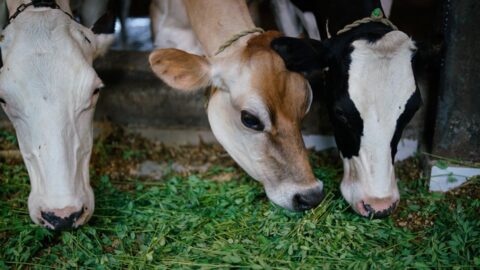I Met a Bishop… and the Pope!
Last Friday, at the invitation of the Catholic Coalition on Climate Change, I spoke at the Climate Change Hearing of the Florida Catholic Conference. The two other speakers in the morning session were Dr. Ricardo Alvarez, who gave a talk on the “Florida Perspective”, and Mr. Walt Grazer, who spoke on the “Theology of Climate Change”. The purpose of this hearing – one of many across the country – was to devise a Catholic response to climate change.
As a Jewish kid growing up in New York City, my interactions with the Roman Catholic Church were limited. Then in 1984, early in my career at Georgia Tech, an opportunity came my way. My friend Doug Davis arranged an invitation for me to attend a meeting on global climate change at the Vatican, one of several meetings on various topics hosted by the Pontifical Academy of Sciences.
It was quite a week – walking through the grounds of the Vatican on my way to and from our meeting, enjoying a private tour of the Sistine Chapel with all its incredible artwork and architecture. The meeting also was pretty amazing.
There were about 15 of us in the global warming meeting, including Roger Revelle, who Al Gore talks about as his scientific mentor in An Inconvenient Truth, as well as Paul Crutzen and Sherry Rowland, who would later share the Nobel Prize with Mario Molina for their work on stratospheric ozone depletion. I found the discussions so stimulating that I had a difficult time following the protocol for speaking – raising one’s hand and waiting to be recognized by our convener – and was scolded on more than one occasion, much to the amusement of my fellow attendees.
The high point of the meeting was an audience with the Pope, who had a message for the 100 or so scientists at the various meetings. He said we had a special responsibility to humankind, that instead of working to build instruments of destruction, we should work to build a better world. Those words were in my mind when I left Georgia Tech for Environmental Defense to advocate for a better world for our children and grandchildren.
Now, more than 20 years later, I was addressing a Catholic Conference on how to respond to climate change. Usually at presentations to non-science groups, the concerns are personal and economic: How will climate change affect my family, my community, the United States? What will it cost to address climate change? Will the U.S. economy suffer relative to that of China? Will I have to give up my car, my air conditioning?
The issues here were quite different. Our host, Bishop Thomas G. Wenski, said that three themes from Catholic social teaching inform the theology of climate change: priority for the poor, pursuit of the common good, and practice of prudence. The poor will suffer the most from the effects of climate change, and humanity needs to make sure their needs are not forgotten. Passing on the gift of creation to future generations, without doing irreversible harm, is an aspect of serving the common good. The practice of prudence demands that we act thoughtfully but with urgency to halt further climate disruption.
Given that perspective, it will be interesting to see how the church decides to respond.












One Comment
I have known for a fact that really the poor ones will suffer the most from the effects of Climate Change, although everyone of us is affected. Different countries has been damaged by it and obviously the poor ones are very much suffering.So, I, as concerned individual, I would like to express my point of view with regards to this,I knew that Mother Earth has been ruined for a long time,in which the blame is on us human beings, but I know that it could be retrieved by means of 3 distinctive yet allied facotrs, these are LOVE, FAITH AND UNITY. We could bring back the beauty of nature if and only if we intend to show love for it, faith that we could still have it and unite in achieving such goal for it.
And I believe that the Church itself will respond similarly as with me.